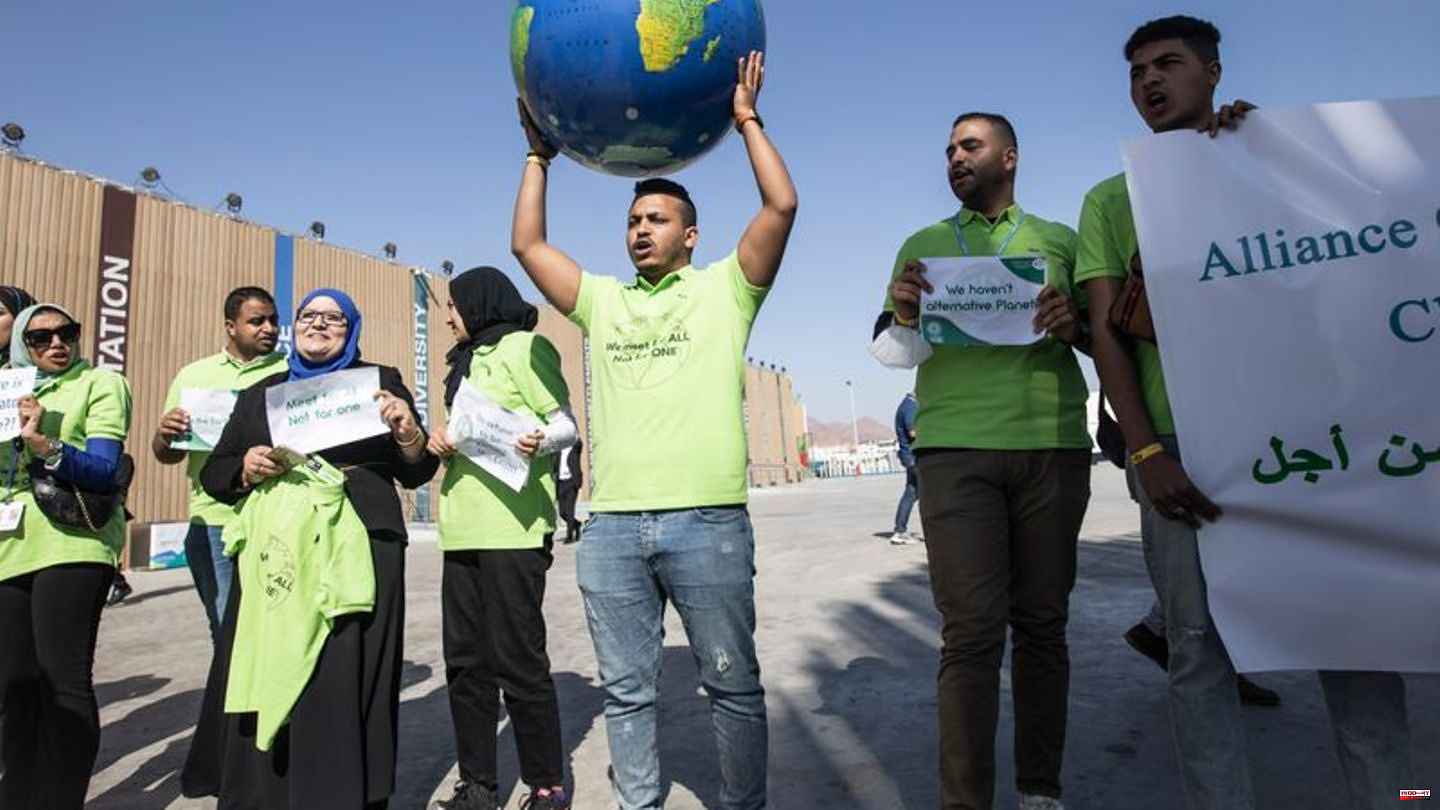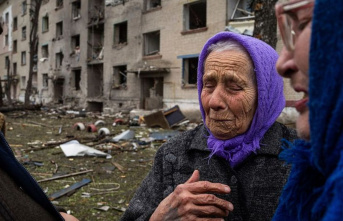In the energy crisis fueled by the Ukraine war, many states are rushing to use more climate-damaging liquefied gas - but are starting to produce significantly more than is needed. As early as 2030, this oversupply could swell to five times the amount of gas that the entire EU imported from Russia in 2021, according to an analysis by Climate Action Tracker, which was presented on Thursday at the UN climate conference in Sharm el Sheikh. Another data report revealed that despite alarming global warming, the vast majority of oil and gas companies want to expand production.
Environmentalists also reacted with outrage to a report that 636 lobbyists for oil, gas and coal were registered at the mammoth meeting - 25 percent more than last year in Scotland. The environmental organization Global Witness and the Corporate Europe Observatory calculated that the fossil industry has more lobbyists in Egypt than the ten countries most affected by the impending climate catastrophe. According to the report, 29 of the 200 or so countries represented have oil, gas or coal lobbyists in their delegations.
Presence of lobbyists "bad joke"
The greenhouse gases such as CO2 released when gas, oil and coal are burned are the main reason for global warming and its fatal consequences, i.e. more and more droughts, heat waves, hurricanes, floods and sea level rise. A spokesman for the organizations called the extraordinary presence of these industry lobbyists a bad joke. "After all, tobacco lobbyists would not be welcome at health conferences, and arms dealers would not be welcome at peace conferences."
As a sign of solidarity with political prisoners in Egypt and around the world, a number of participants dressed in white came to the conference site on the fifth day of COP27. This is the color worn by "tens of thousands of unlawfully detained people" in the host country, said the alliance COP Civic Space, an association of human rights organizations. Some gagged themselves with white ribbons - in solidarity with people who were silenced. One speaker said: "There are thousands of activists who should be here missing." Freedom of expression and assembly are severely restricted in Egypt.
Activists on hunger strike
In the case of the imprisoned democracy activist Alaa Abdel Fattah, who protested against his prison conditions by not eating and drinking water in Egypt, according to his family, the prison authorities "intervened medically". The judicial authorities have been informed of the move, the family said. It was unclear whether the intervention involved some form of forced feeding, such as intravenously. Abdel Fattah, who was one of the leading figures in the 2011 revolution, has been without food for months and also without water since Sunday morning - coinciding with the start of the world climate conference in the country. Chancellor Olaf Scholz, French President Emmanuel Macron and British Prime Minister Rishi Sunak also addressed the case.
About 96 percent of the almost 700 relevant oil and gas companies recorded in the public database "Global Oil
Massive increase in oil and gas production
It said 512 oil and gas companies are taking active steps to bring 230 billion barrels of oil equivalent of untapped resources into production within the next one to seven years. Extraction and incineration will release about 30 times as much greenhouse gases as the EU's annual emissions.
Scientists also warned that in just over 25 years, three billion people are likely to be living in regions of the world classified as vulnerable global warming hotspots. That would be about twice as many as now. The regions are mainly in Central America, the Middle East, parts of Asia as well as in Central Africa, East Africa and the Sahel region.
In the most vulnerable states, the mortality rate is about 15 times higher than in the regions least affected by global warming - for example due to more frequent floods, droughts and storms, it said. All this also leads to more forced migration, millions of people would be displaced in the coming years and decades because of global warming. The Potsdam Institute for Climate Impact Research also contributed to the report "Ten new insights in climate science 2022". UN climate chief Simon Stiell called the results "alarming".












